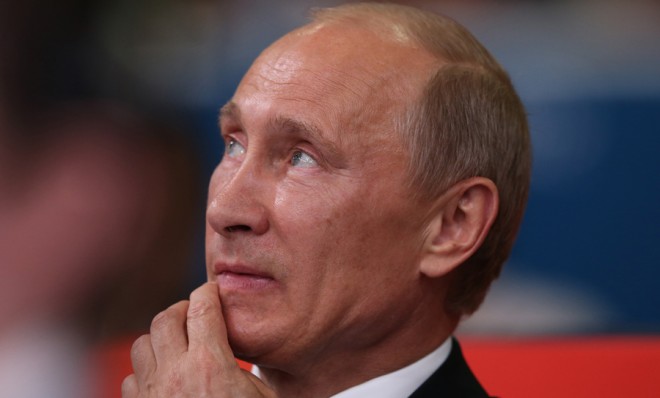Why being an entrepreneur in Russia could land you in jail
It's a whole new angle on creative destruction

A free daily email with the biggest news stories of the day – and the best features from TheWeek.com
You are now subscribed
Your newsletter sign-up was successful
Russia is a pretty unfriendly environment for business start-ups right now.
Not only have shrinking oil revenues slowed economic growth to a languid 1.6 percent, making it harder to get a small business off the ground, but many innocent people are going to jail for white collar crimes — the result of endemic police corruption.
About 110,000 people are serving jail sentences for while collar crimes, like fraud, embezzlement, counterfeiting, and tax evasion, says The New York Times. An additional 2,500 are in jail awaiting trail. Statistics from the Russian prosecutor general's office show that more "economic crimes" are prosecuted than burglary and robbery.
The Week
Escape your echo chamber. Get the facts behind the news, plus analysis from multiple perspectives.

Sign up for The Week's Free Newsletters
From our morning news briefing to a weekly Good News Newsletter, get the best of The Week delivered directly to your inbox.
From our morning news briefing to a weekly Good News Newsletter, get the best of The Week delivered directly to your inbox.
That's partly why President Vladimir Putin last year appointed Boris Titov as an ombudsman for entrepreneurs' rights. On Titov's plate: A six-month amnesty program ordered by Putin and passed by the Duma last week, which should free 3,000 to 10,000 innocent imprisoned business people. The logic, explains The New York Times:
The amnesty is needed, [Titov] said, because the government had "overreacted" to the threat of organized crime and the inequities of privatization and over-prosecuted entrepreneurs during Putin’s first 12 years in power as president and prime minister. [The New York Times]
Furthermore, in the Wild West of Russia's legal system, business rivals have been bribing police to remove their competition by seizing their businesses and arresting them. The police are benefiting doubly, because promotions are based on informal arrest quotas.
So everybody wins — except, of course, the often-innocent businessmen who go to jail.
However, you can hardly blame small-time crooks for adopting such tactics, considering that Putin himself is the granddaddy of using suspicious white-collar criminal charges to sweep his rivals under the carpet. Just ask Mikhail Khodorkovsky, the former head of Yukos who was thrown in jail for a slew of alleged business crimes.
A free daily email with the biggest news stories of the day – and the best features from TheWeek.com
Indeed, some say "the amnesty fails to address corruption or tackle flaws in the legal system," says Reuters.
"Lengthy jail terms are too often handed down in cases that should be settled by civil suits and judges are too easily bought, with some publishing verdicts direct from the prosecutor's charge sheet — including spelling mistakes," says Reuters. "They also say Putin tailored the amnesty to keep political opponents, former oil tycoon Mikhail Khodorkovsky in particular, behind bars."
But Putin, who made a campaign promise to spend this term rooting out corruption, told investors at a conference in St. Petersburg last month that the amnesty is an "act of humanity" — and that it's essential to create a more business-friendly environment in Russia.
Carmel Lobello is the business editor at TheWeek.com. Previously, she was an editor at DeathandTaxesMag.com.